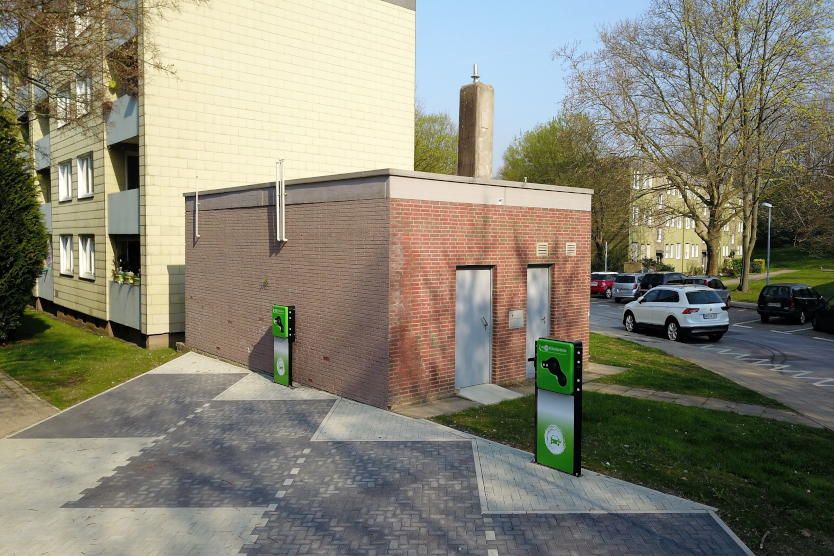
The project area in Bottenbruch: The small building in the front containing the CHP unit and the battery storage. In the foreground the charging stations for electronic vehicles.
© medl GmbH
The energy efficiency assistant is to control the operational management and the energy supply of a municipality in western Germany in such a way that the buildings’ heating supply can be provided in a carbon-neutral manner. To this end, local consumption and local power generation are to be aligned with one another, so that locally produced electricity is used locally and the amount fed into the distribution grid is kept to a minimum.
To achieve this, the energy efficiency assistant will be applied to use the storage systems integrated in the district’s grid efficiently. A large battery bank with a capacity of 30 kWh will be installed and the use of electric cars in the district - charging and discharging them - will increase the flexibility of the local power grid. And, in addition, the peak loads are to be shifted to times when there is sufficient locally-generated energy available. To accomplish this, a load forecast method will be developed within the scope of the project, which takes both the power generation and consumption into account.
A new centralised heating system, consisting of a CHP plant with a capacity of 50 kW and a photovoltaic plant with a planned capacity of 30 kWp, complemented by a bank of batteries, is to cover the energy generation requirement for the municipality of Bottenbruch in Mülheim an der Ruhr. Two apartment buildings with a total of 48 apartments are to be supplied with heat from the planned district heating grid. The buildings will be equipped with energy management systems, smart home systems for managing the energy and with energy measurement technology.
The project GreenEnergyFirst is being funded by the Federal Ministry for Economic Affairs and Energy (BMWi) from July 2017 to June 2020.


